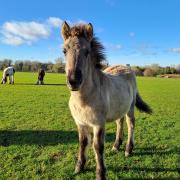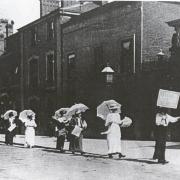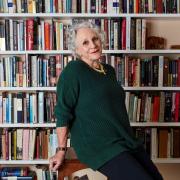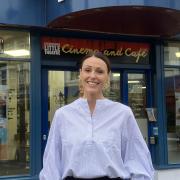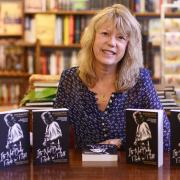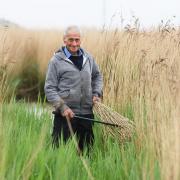The Norfolk-born author who created the wonderful Slummy Mummy turns her timely attention to the perils of technology in her new book. Interview by Catherine Larner.

As you press “send” on an email, post a picture on Facebook or capture a moment on your smart-phone, do you consider what might happen if it gets into the wrong hands? And what about your children – do they think about the consequences of their internet activity?
“I don’t think teenagers think about the next hour, let alone the next day,” says novelist Fiona Neill. “When you become aware of the perils of the internet and technology, it is surprising not more people mess up. It’s so easy.”
The Good Girl explores one such scenario. Published next month, the story centres around Ailsa, the headteacher of a school in a fictional town in Norfolk. One day she is informed that a pupil is the subject of an explicit video discovered on a mobile phone, and that this has gone viral. The pupil is Ailsa’s daughter.
Opening with this devastating revelation, the book goes on to explore the chain of events.
“When something catastrophic happens, you spend ages analysing what led up to it,” says Fiona. “It is simpler to think there was one reason, but actually it’s always a multiplicity of things: She is a bad mother, or she is a terrible girl, or this is where we are going with technology in the world. But technology is both good and bad, and life is complex.”
The book breaks away from the comic novel Slummy Mummy book and newspaper column with which Fiona Neill made her name and for which she is currently writing the script for a proposed film. The Good Girl is her fourth novel and she believes her books are getting increasingly more serious. “I think it’s part of the ageing process,” she laughs. “But all my books deal with contemporary themes.”
Addiction and addictive personalities; the pressures on teenagers, and their parents; the impact of technology; honesty and deception – there are a multitude of big issues being encompassed in the book. But above all, Fiona says she wanted to explore what we know about human behaviour today.
“Neuroscience really interests me because it is a very new discipline. It addresses really big philosophical issues – I think as people understand more about how the human brain works, they will be more forgiving.
“The teenage brain,” for example, she says, “isn’t designed to make rational, intelligent decisions – it is rash and fast living. I think it is surprising that not more teenagers get into trouble, which I think is a measure of the fact that actually they manage technology quite well.”
Two of Fiona’s three children are now in their teens, so how did this affect her research into this area? “You can’t ever protect your children from everything,” she concludes. “You can’t inoculate them from failure. The only way in contemporary life, to deal with technology is to talk about it. You can’t stop it.”
Fiona looks back on her own childhood brought up on a farm at Thurgarton, near North Walsham, with gratitude. She often returns to the county and considers herself “more Norfolk than anything else”.
“We were so lucky,” she says. “Our generation has been really privileged in being able to forget what we did wrong - our mistakes have been forgotten. The Norfolk of my childhood was quite a wild place to grow up in and I am glad that it wasn’t all recorded.”
So will Fiona be using social media to promote this book? “I don’t do Twitter. I don’t do Facebook,” she admits. “I’ll leave that to my publisher!”
The Good Girl by Fiona Neill will be published by Michael Joseph (Penguin) on April 9, priced £14.99.




